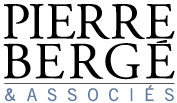Lot n° 301
Estimation :
4000 - 6000
EUR
Result with fees
Result
: 3 539EUR
Estienne, Henri
The Introduction to the Treatise on the Conformity of Ancient Wonders with Moderns, or Preparatory Treatise to the Apology for Herodotus. The argument is taken from the Apology for Herodotus, composed in Latin by Henri Estienne, and is here continued by himself. [Geneva, Henri Estienne], November 1566. In-8
(155 x 95 mm) of 16 ff.n.ch., 572 pp. Tan calf, spine decorated, spotted edges (early 18th century binding).
Renouard, 126:7; Schreiber, 161 (second printing); Adams lacks.
First edition, first printing. Extremely rare copy of the uncensored edition of which bibliographers have listed only 2 copies.
This masterpiece of satirical literature was censored, after its printing, by the council of Geneva. Henri Estienne had to reprint 56 pages of his book. A few copies had already been sent to Lyon, however, and some were sold there before being withdrawn from sale.
For this edition Renouard explains well the differences which one can meet: "One announces three editions under this same date, namely the original of 572 pages, in small characters, with the olive tree of Estienne on the title; a reprint, same characters, but without the olive tree, and a third, in larger letters, with the olive tree, and having 680 pages; these last two with various changes and among other things, not preserving any more, in chapter 21, a long passage of the original edition, to which is substituted another account".
Here, the uncensored passage on page 280 (chapter 21) reads: "but would I dare to speak of the infamous tribute which they wanted to make the priests pay in order to be exempted from it, and to call it by its name, the couillage". This "couillage" has been replaced in the official edition by "which has also been named by a name of the same".
This copy must have narrowly escaped the censorship, as shown by the first 3 leaves of the main text. These leaves (pp. 1 to 6) were torn by the censor but who left them in their place in the body of the work; an amateur had them restored later probably at the time of the binding.
Apart from this important difference, the bibliographers Isidore
Lisieux and Ristelhuber have carefully noted all the changes made to this edition and they indicate: "Hardly any of the intact copies escaped the rigorous suppression which was made of them; and they remained so long hidden or unknown, that of the thirteen editions or counterfeits published after the first one in the forty years which followed it, not one reproduces the censored text.
"Ostensibly written as a defence of the veracity of the ancient
Greek historian Herodotus, the book is actually a violent attack on
Roman Catholicism, as well as a satire of 16th-century society. By comparing the amazing stories told by the 'Father of History' with no less amazing contemporary events, Estienne shows that there exists no valid reason to question the truthfulness of the ancient
Greek historian. Among Estienne's sources for his tales, stories and satirical fables are Boccaccio, Froissart, Commines, Sleidanus, Erasmus, and others. The Apologie pour Herodote (as the book is traditionally known) is one of the first books in which is found criticism of Rabelais' work... Just before publication of the Apologie pour Herodote, the Geneva Council ordered Estienne to alter certain passages which were found objectionable.
The required changes were immediately effected, by means of cancels, in all copies in stock, as well as in those copies which could be recalled from Lyon, where an initial shipment had been made; however, it was too late to retrieve a handful of these copies, which had already been sold. The result is that two issues of the first edition are known, both dated November 1566 on the title-page, and both with 573 numbered pages; but the second issue contains 28 cancels (i.e. 56 pages) with alterations of the original, or suppressed, version. As it is to be expected, copies of the first, suppressed issue are of the greatest rarity: a century ago Liseux's extensive research located only two such copies... We may here single out the key passage on p. 280 (lines 1-4) which, in the uncensored version of the suppressed issue reads..." (Schreiber).
A copy of the very rare first edition but in which the binder has omitted to insert the joint leaf A3/A6 (pp. 373/74-379/80).
Provenance: Pierre-Jean Grosley (1718-1785), famous lawyer from Mauvelain. A great traveller, he visited successively Italy, England, Holland and Switzerland. He collaborated in particular to volumes IV and XIV of the Encyclopédie (ex-dono on the title page dated 1741 and short bibliographical note on the endpaper) - Bibliothèque du château des Ormes (ex-libris).
My orders
Sale information
Sales conditions
Return to catalogue

